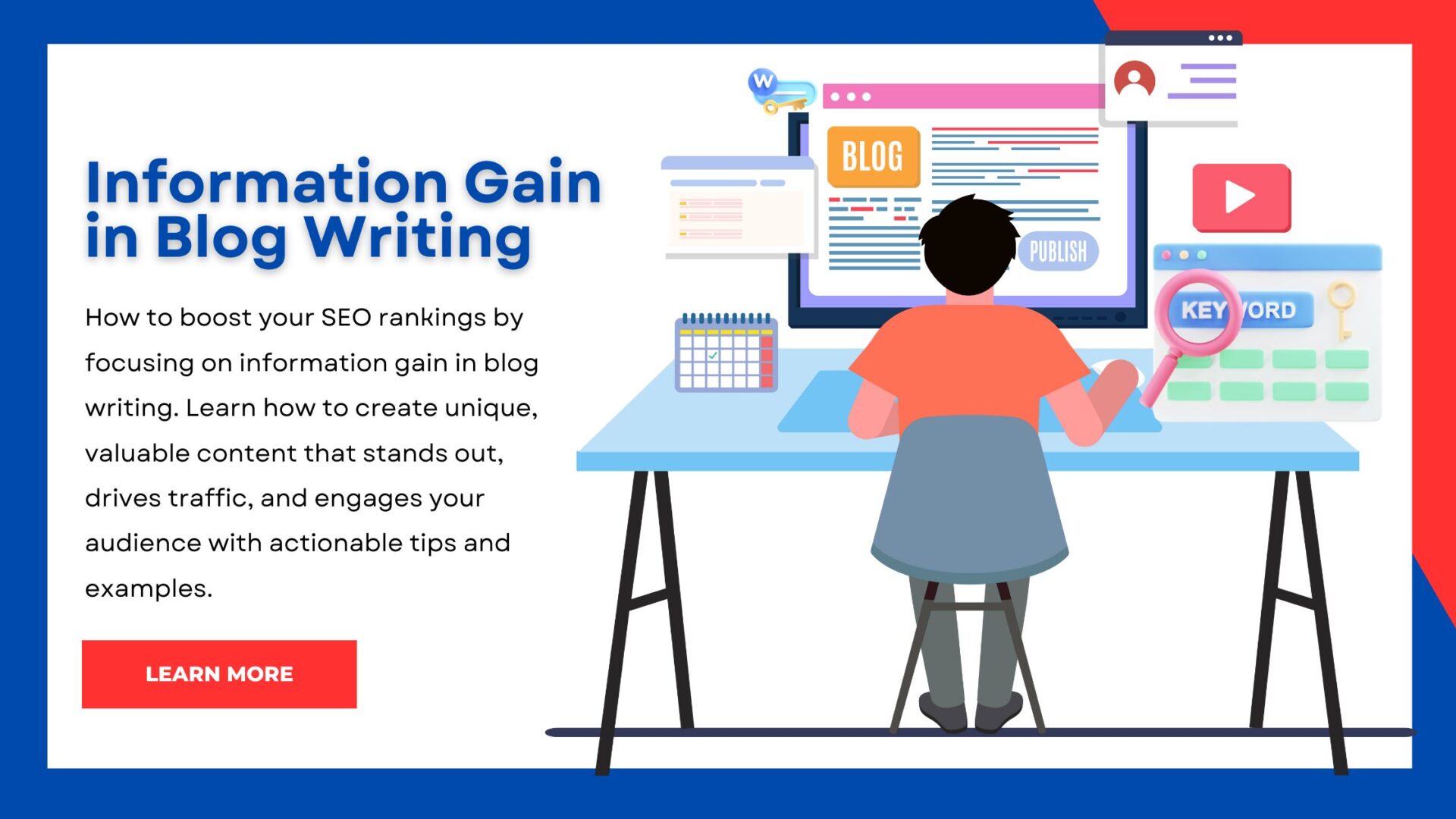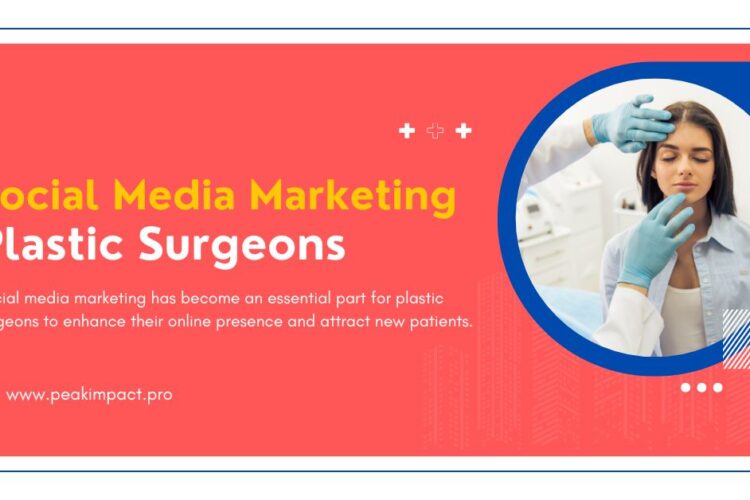
Information gain is a new way of SEO and blog writing. It focuses on adding unique, valuable insights instead of repeating existing content. With search engines evolving, creating fresh, meaningful content is crucial to boost rankings.
Quick View
Here, we’ll cover how to maximize information gain when writing blogs to stand out from the competition and improve search engine performance.
What is Information Gain in SEO?
Information gain refers to the value or unique insights your content adds to a topic that isn’t present in other similar pieces. Google introduced this concept to reward blogs that bring something new to the conversation, improving user satisfaction by avoiding repetitive information.
Why Is It Important?
Google’s algorithms are increasingly rewarding content that adds value rather than simply regurgitating what’s already available. Information gain allows your blog to rank higher by providing readers with fresh, helpful information. It helps you:
- Stand Out: Search engines prioritize originality. Your blog must provide value beyond what’s already ranking.
- Improve User Engagement: Fresh information keeps users engaged longer and reduces bounce rates.
- Increase Ranking Potential: Content with higher information gain scores is more likely to rank better.
How to Achieve Information Gain in Blog Writing
1. Conduct Thorough Research
Before writing, analyze top-ranking articles on your target keyword. Look for gaps or areas where you can provide more value. Research additional sources, such as academic papers or proprietary data, to bring something new to the topic.
Example:
If writing about “SEO best practices,” add insights from a survey of top marketers or case studies from your own business.
2. Focus on Original Data
Using proprietary or unique data in your content helps you add significant information gain. For instance, use in-house research, customer surveys, or expert quotes to differentiate your blog.
Tip:
Include charts or graphs that interpret your data visually. Visuals enhance user understanding and engagement.
3. Reframe Existing Information
If the topic has been widely covered, find a new angle or reframe existing data. This can be achieved by offering deeper analysis, challenging common beliefs, or presenting a different perspective.
Example:
Instead of another “SEO checklist,” try “5 Myths About SEO You Need to Stop Believing,” bringing in contrary opinions.
4. Optimize Blog Structure for Readability
Keep sentences short and easy to understand. A readability score of 100% ensures users can easily digest your content. Use short paragraphs, bullet points, and subheadings to make your blog skimmable. This improves the user experience and boosts information gain for your content.
Tip:
Keep sentences under 20 characters. This improves readability and makes content accessible.
5. Cater to User Intent
Ensure your content addresses specific questions users are likely to have. Blogs that answer user queries comprehensively tend to rank better. Include relevant examples to support your points.
Example:
In a blog about “information gain,” include real-world case studies where businesses improved their SEO by using this concept.
Structuring Your Blog for Maximum Impact
- Start with a Strong Introduction: Capture readers attention by explaining the relevance of information gain and how it benefits SEO.
- Use Subheadings Strategically: Break down your content with descriptive subheadings that align with user queries.
- Offer Actionable Insights: Instead of just theory, provide tips and steps that readers can apply immediately to their blog writing.
- End with a Clear Conclusion: Summarize the value of using information gained in blogs, reinforcing its importance for SEO success.
Tips for Boosting Information Gain in Your Content
- Interview Experts: A unique interview with an expert can add depth to your blog that other articles lack.
- Use Original Visuals: Creating original images, videos, or infographics significantly improves content uniqueness.
- Update Regularly: Keep revisiting and updating your blog with fresh data or perspectives to maintain its relevance.
Summary
Information gain is a powerful tool for content creators aiming to boost their SEO rankings. By providing fresh, original insights and structuring your content for readability and user intent, you can enhance the visibility and value of your blog. Stay ahead of the competition by focusing on what you can uniquely bring to the conversation.
Action Step:
Start identifying opportunities to improve your blog’s information gain by analyze existing content in your niche. Focus on how you can add fresh insights or proprietary data that no one else offers.
FAQs
1. What is the value of blogging?
Blogging builds authority, drives traffic, and improves SEO for businesses, while providing a platform for personal expression or sharing expertise for individuals. It creates engagement, attracts potential customers, and strengthens online presence, making it valuable for both personal growth and business success.
2. What makes a blog better?
A blog stands out by offering unique, valuable content that engages readers. High readability, regular updates, and user-friendly design enhance its appeal. Providing fresh insights, actionable advice, and well-researched information helps make a blog better and more impactful than others.
3. What is the purpose of a blog?
The purpose of a blog is to share valuable information, insights, or opinions with a specific audience. Blogs help build brand awareness for businesses, engage readers, and create a platform for personal or professional expression, offering both entertainment and educational value.
4. Are blogs a good source of information?
Yes, blogs can be great sources of information, especially if they come from credible experts or organizations. Well-researched and well-written blogs provide relevant insights, practical advice, and up-to-date trends, making them a trusted resource for many topics.
5. What is the benefit of writing a blog?
Blogging improves communication skills, builds a personal or professional brand, and provides an outlet for sharing knowledge. For businesses, it boosts SEO, drives traffic, and attracts leads, while for individuals, it offers personal growth and the potential for monetization.




